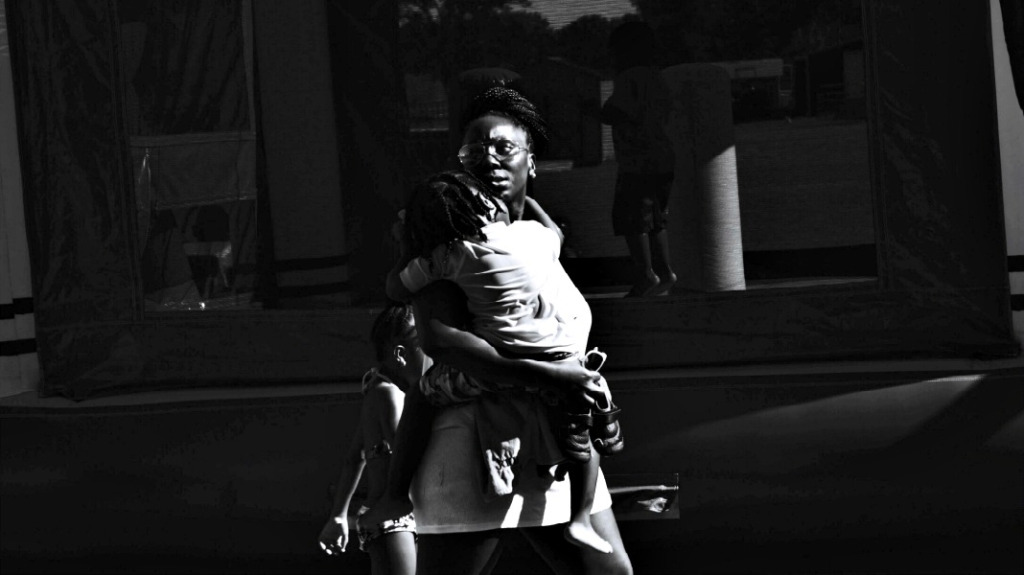Reflecting on “The Photograph” and Black mother-daughter relationships

Getty Images
I’m slowly learning from our relationship how important it is to maintain boundaries
by Kui Mwai
Full bodied, multilayered, complex Black mother-daughter relationships are rarely captured on screen. It wasn’t until I watched Stella Meghie’s “The Photograph” that I realized just how much I was craving to see something akin to my mother and I’s relationship on film.
“The Photograph” invites its viewers into characters Mae (Issa Rae) and her mother Christine’s (Chanté Adams) fraught relationship, capturing perfectly the tension that some daughters feel when trying to navigate boundaries and understanding with their mothers. Mae and Christine’s relationship mirrored the one I have with my own mother and serve as a reminder that we both deserve grace for the ways we’ve harmed each other.
My mother showered me with an aggressive amount of love from an early age. She poured everything into curating my life experiences, putting me in the “best” schools and exposing me to the world at a very early age. She sacrificed herself for me, a choice that I deeply admire and at the same time am frustrated about. Black mothers are socialized to sacrifice their lives once they have children, and my mother was no different.
Though that anger has dissipated more as I’ve gotten older, the pockets of disconnection are still here. My mother has difficulty showing self love, and even though I know she’s working on it, I want to shake her. I feel myself almost yelling at her to put herself out there, to believe in herself and her abilities. I know that the level of hesitation she feels at pouring into herself is because of the guilt and subliminal messaging she received from the world about what it means to be a “good mother”.
We’ve done some deep healing over the years, growing from mother and daughter to friends, but I still worry about her taking care of herself and finding joy separate from our connection. I also want to be able to communicate with her about the pressure it puts on me to maintain that connection, knowing that she doesn’t have many others, and how I’ve become complicit in placing high expectations on both of us.
My mother was my first entry point into Black womanhood and I’m immensely grateful for her. If it wasn’t for her, I wouldn’t be here.
RELATED: What I learned from studying my Black mother’s pedagogy of love
I’m slowly learning from our relationship how important it is to maintain boundaries, how she’s been encouraged to not take stock of which ones she should maintain and which ones she can let go of. From an early age, I took notice of her relationship with herself and others, and now find myself in the exact state I promised I wouldn’t be in.
I learned so much from my mother. She taught me which lotion to use, how to wrap my head at night, what music brings me and how to be a good person. And yet, I found contradictions in her lessons around holding boundaries, self love, and how to find a balanced life.
Our mothers are often (and unfairly) tasked with child rearing, even when they have partners at home. They put a lot of their hopes and dreams into their children because they both want us to live a better life and because they mourn not having the same opportunities. Communicating about our varying challenges and opportunities helps reconcile that relationship because then we can be honest about our traumas, experiences, and hopes.
Similar to Mae (Issa Rae) in the film, I led with that anger for the majority of my life. However, when she finally sees her mother as a woman with fears and traumas, who carried the weight of being Black in America, she sees the love her mother passed on to her. Her anger falls to the background. She’s able to see who she really is and what she wants. She heals.
RELATED: The Revolution of Black Mothering: Confronting a future that doesn’t always include us
Watching “The Photograph” helped remind me how important it is to center patience and care in my relationship with my mother. The older I get, the more I understand two things: 1) being a black woman in America is exhausting, emotionally and physically and 2) the struggle not only continues, it evolves. My mother is trying to figure out who she is at her core. She has had to abandon who external forces told her she was.
She’s supported me in all my endeavors and I pray that she’ll be reminded of her strength, joy and passion. She gave me the to not have to struggle in the ways that she did and often sacrificed her own comfort for mine.
Being in a relationship with our mothers is a two-way street and must be reciprocal. If you’re lucky enough to have your mother or maternal figure in your life, listen to them with intent. Give them extra amounts of love and kindness. Encourage them to tell you their stories. More often than not, it’s the key to healing.
Kui Mwai is a freelance writer based out of DC. Her passion is using the written word to offer authenticity, humor, and truth to the issues that face the communities she is apart of- the black community, the international community, the feminist community. She prides herself on using her third culture perspective to offer compelling and fresh commentary on a myriad of social topics, from women’s issues in sub-Saharan African to black culture in America.

